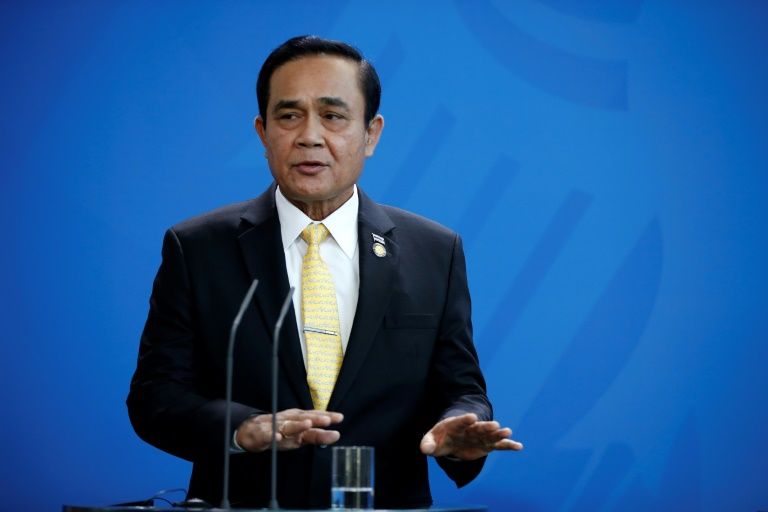
The junta this month lifted a ban on political campaigning that had been in place since 2014, when the army kicked out the administration of Yingluck Shinawatra, and the race is now on to shore up votes.
The military-backed Palang Pracharat party held a meeting in the northern city of Chiang Mai intended to reveal the names of candidates running for office.
Thailand's rural northern heartland has long been a bastion of support for Yingluck and her brother Thaksin — who was himself ousted in 2006 — thanks to welfare schemes and farming subsidies.
Chiang Mai is even more symbolic as it is the hometown of the brother-sister political duo, both of whom live in self-exile to avoid what they say are politically motivated convictions.
Thailand's political activity ban stays for now - PM
Speaking at a provincial sports stadium, officials from Palang Pracharat, which was started by members of the junta cabinet, presented the party as a new option to bridge Thailand's divides.
"We cannot let the country walk in the old footsteps. We need to become the third choice who can change politics," said party secretary general and current minister of commerce Sontirat Sontijirawong in a meeting streamed live on Facebook.
Palang Pracharat is up against a number of challengers, including Yingluck's former party Pheu Thai and newcomer Future Forward, which is hoping to lure the youth vote.
Parties loyal to the Shinawatras have won every Thai general election since 2001, but both star leaders are outside the country.
Thai junta chief vows elections in November 2018
Junta leader Prayut Chan-O-Cha has repeatedly insisted that he has no interest in politics.
But he has spent the last few months crisscrossing the country, building alliances with local politicians, and offering handouts.
He has also attempted to show his softer side to the public through photo ops and public appearances.
Palang Pracharat party leader Uttama Savanayana, who is also the minister of industry, made a thinly veiled reference to Prayut as a potential next leader.
"We want to overcome conflict, I know you know there is a man who will guide us through the conflict, and in time he will reveal himself," Uttama told the audience.
But no matter the outcome in February critics say Thailand will not return to full democracy.
A new charter embeds government policy for the next 20 years, enshrines a hand-picked upper house and the possibility of an appointed prime minister.



1725030039-0/Untitled-design-(2)1725030039-0-165x106.webp)
1725366721-0/kyle-(1)1725366721-0-165x106.webp)



1732707402-0/Untitled-design-(8)1732707402-0-270x192.webp)








COMMENTS
Comments are moderated and generally will be posted if they are on-topic and not abusive.
For more information, please see our Comments FAQ